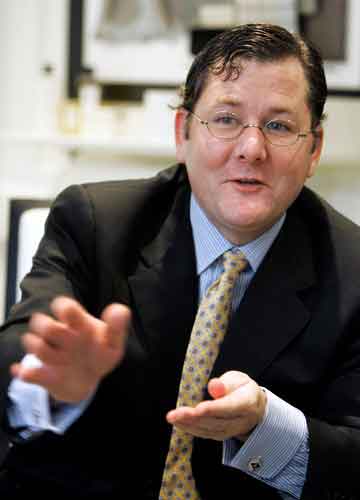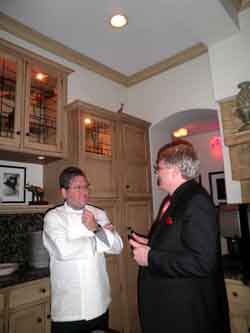
There are many famous Chicagoans. First, there is Father Jacques Marquette, the French Canadian Jesuit explorer, who visited the Chicago Portage in 1673 as he travelled down the Mississippi. Then there is William Ogden, Chicago’s first mayor who designed the first drawbridge, built the first railway during 1847 with $350K, donated the land for Rush University, and built Chicago’s first canal resulting in Goose Island in 1853.
Abraham Lincoln was nominated to the Republican Presidential Candidacy in Chicago going to Washington DC under stealth before the Civil War. He represented Illinois Central in Chicago at the Federal Court that once stood on the same spot as Northwestern University’s Law School commemorated in the Lincoln Room built to model the British House of Lords in London. There is Mayor Anton Joseph Cermak, the thirty-fifth mayor of Chicago who died at the hands of an assassin attempting to kill President Franklin Roosevelt in 1933. Cermak is credited with forming the Chicago Democratic political machine. Among other Chicago illuminati are two Mayor Daley’s, who have made Chicago famous worldwide.

When his sister, a member of the New Trier Track Team thought she could not run more than a few hundred meters he went jogging with her. They started a discussion on politics. Eight miles later sister realized Trotter-Hinkamps could run further. Anne Trotter Hinkamps described growing up with Charlie as “exciting, mind-expanding and at times challenging” qualities that did not change when they became adults.” His first words to his younger sister were “Baby Anne, get up.”
“Charlie used to say that he raised my brothers and me.” Anne Trotter-Hinkamps said, “I don’t think it’d be too far for me to say he raised many others in this room as well.” The funeral service at Fourth Presbyterian on Michigan Avenue was dotted with every tenth person in a Charlie Trotter white chef’s smock, as his students came from all over the world in a tribute to his culinary talent.
At graduation from University of Wisconsin in Madison, he did not want to go to the ceremony because it was held in the Football Stadium. Amazingly Charlie overcame dyslexia and hyperactivity to earn his degree. So his parents went out to dinner to celebrate Charlie’s success. Father asked him what he wanted to do. Charlie said, “Cook.” Dad replied, “Go study with the best.” Which is exactly what Charlie did. Charlie started in California and then went to France, working, eating and drinking his way through the kitchens of the best chefs. Trotter returned to Chicago and started hosting dinners for friends at their homes.
A year later Charlie’s father bought him a brownstone building at 816 West Armitage in Lincoln Park area of Chicago. Dad came out of retirement to offer Charlie an informal master’s in business administration in running a family business, while mom, sister and brother helped. The rest is history. In a few years Charlie Trotters was among the best restaurants in the world. How did he do it?
First, Charlie H. Trotter in 1987 was the first to have food sent directly from the farmer, fisherman, hunter and butcher directly to his restaurant daily. He never kept anything overnight. Second, dinner at Charlie Trotter’s was a unique experience every time. He never repeated the same dish. Imagine over 300 days twice a night he offered a new recipe and menu for twenty-five years. That’s means Charlie prepared over seven thousand five hundred unique dinner menus. Third, Charlie, a perfectionist demanded the best of everyone around him. By throwing caution to the wind and giving cooking his all he always figured he could go back to law school with his undergraduate degree and have another career.
After ten years in the business, the University of Wisconsin President called him. He asked Charlie to come to Madison to receive an honorary doctorate in the same Football Stadium that he did not want to attend for his undergraduate degree in political science. Life has such paradoxes.
At his fifteen-year anniversary of opening Charlie’s culinary palace, ten of the best chefs in the world came for weeks of delightful surprises. After treating these best chefs to Charlie’s creative and original dinners, Trotter escorted them to his student chef’s places, Matthias Merges (Yusho and A10), and Gale Grand (formerly of Tru). Charlie Trotter was “one of a kind. He was born here, he made his mark here and he will be remembered here fondly. He turned Chicago into the world-famous culinary capitals it is today,” as Mayor Rahm Emanuel eulogized Charlie. After the ten chefs visited, five of them opened restaurants in Chicago.
As the popular Emeril Lagasse said at the reception after the funeral, “Now heaven will have great food.” As Mayor Emanuel said, “Each dish was original, just like him, ever bold, never boring, always memorable, never forgettable. No one who walked into Charlie Trotters left unsatisfied.”
The minister, Sarah Sarchet Butter, the pastor from mother Donna Lee Trotter’s First Presbyterian Church in Wilmette noted that although Charlie was not a church-goer, he shared Jesus’ sense of hospitality. “He had a heart for those in need.” Few did not fail to notice the paradox in her last name, “butter.”
Rahm Emanuel noted that he fed the homeless, the unemployed and the down-on-their luck from his kitchen. Charlie also offered scholarships through the Charlie Trotter Culinary Education Foundation, and hosted hundreds of benefit dinners. Trotter hosted a three-week summer cooking class for Hephzibah Children’s Association at Dominican University in River Forest. The minister of Fourth Presbyterian, Calum MacLeod, in his thick Scottish brogue, noted that at a benefit for the Scottish Orphanage Charlie made the national feast, haggis, but he did it the “Trotter way” with “a splash of soy sauce and lemon grass. And it tasted great.”
At the reception after the celebration for Charlie’s his, glasses of Nicholas Feuillatte Brut Reserve Champagne were passed with canapés including chicken liver mousse with strawberry jam and shortbread, small cups of maple-pumpkin bisque with granola and cranberries, and a takoyaki ball filled with squash and fermented garlic miso. Servers passed lobster bruschetta and avocado-pistachio-caviar bites. Giuseppe Tentori (GT Fish and Oyster, Boka) rounded up Matthias Merges, Homaro Cantu (Moto, iNG), Elliott Kim and Mindy Segal (Mindy’s Hot Chocolate) and Art Smith (Table 52) provided just a touch of what “Charlie” would want. As former Trotter pastry chef Gayer said, “this club of all these people who spent hours upon hours side by side. We shared the same passion.” Chefs from around the world filled the reception hall.
A friend told the best Charlie Trotter story the day before the funeral. Charlie heard he was the second worst boss in Chicago. Trotter called a staff meeting at his restaurant immediately. Charlie said, “We have to get serious around here. I expect to be the worst in the city!”
I asked a chef who sat next to me what his story was. He said on his first payday he announced, “This is Charlie Trotter day.” Charlie came behind him and said, “The day I fire you is Charlie Trotter day.” Eighteen months later he told the chef, that it was “time to go. Do you want to leave now, or at the end of the day? You aren’t progressing any more.” The chef said, “At the end of the day.” Charlie retorted, “Call me in two weeks so I can send you to one of my friends to work.” In other words, Charlie was promoting him. I asked the chef, “Did you call him?” He said, “No, I was too afraid.” I replied, “You must really hate Trotter, because here you are at his funeral.”
Farmer Lee Jones of Ohio called Charlie, “a great mentor.” Or as research chef, Todd Menaker said, “It was the most intense experience of my life-every day. Sometimes it was good; sometimes it was very bad. But in the end it changed my life and made me whom I am today.”
When we went to Charlie Trotter’s restaurant we asked to tour the kitchen where there was a special table for those customers who wanted to watch the cooking. Our neighbors Rich and Mary claimed that it was a special experience to watch and then enjoy the delightful dinner there. There were a dozen workers. If one made a wrong move, then it would be like the Keystone Cops with total chaos in a space about 5 meters by 5 meters. There was a special French metal wood-burning stove that required removing the walls to put in the kitchen for special dishes. After chatting with Charlie about his life and his many successes including half a dozen cook books, many television shows and movies, and numerous awards, we sat over a French grape’ drink at the bar compliments of the chef.

Robert John Zagar with Charlie H. Trotter
We hope that his friends and his wife, Rochelle, keep up the memory and the tradition of teaching inner city pupils cooking at Charlie Trotters Restaurant. In short, the chef’s intense creativity and never-repeat-a-dish made his restaurant the most talked-about place in Chicago. The James Beard Foundation named Charlie the country’s Outstanding Chef in 1999. The next year the Wine Spectator magazine called the restaurant the best in nation. In 2002 he received the Beard Award for Outstanding Service. Charlie’s best legacy is the hundreds of student chefs he left to follow in his footsteps. Even Kass, the famous Chicago Tribune syndicated columnist who had coffee with Charlie Trotter regrets not spending the money to enjoy one of his meals before his untimely departure.
@ Robert John Zagar PhD MPH, Agata Karolina Zagar MBA, Chicago (Polish News,
December,17th, 2013




